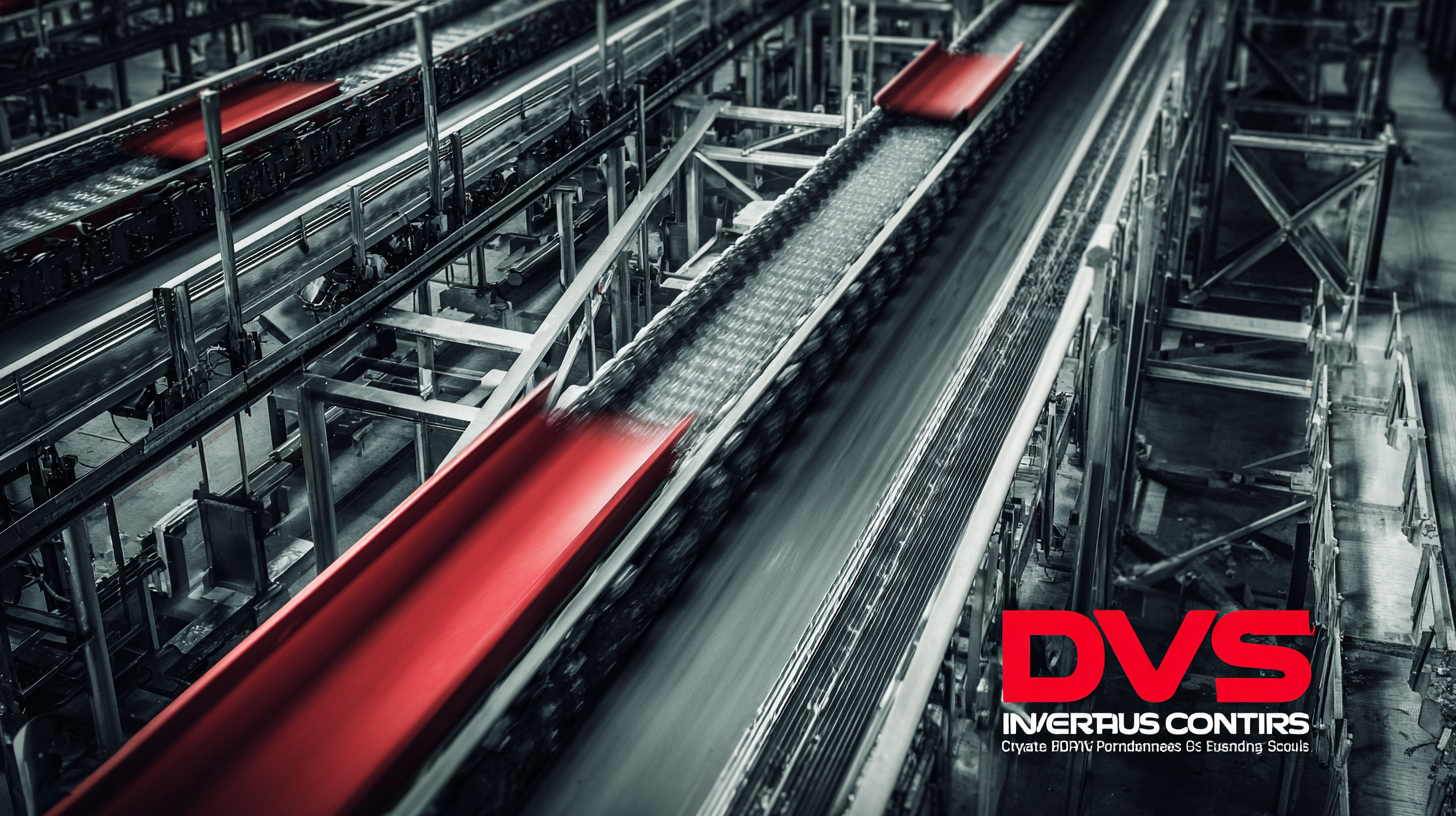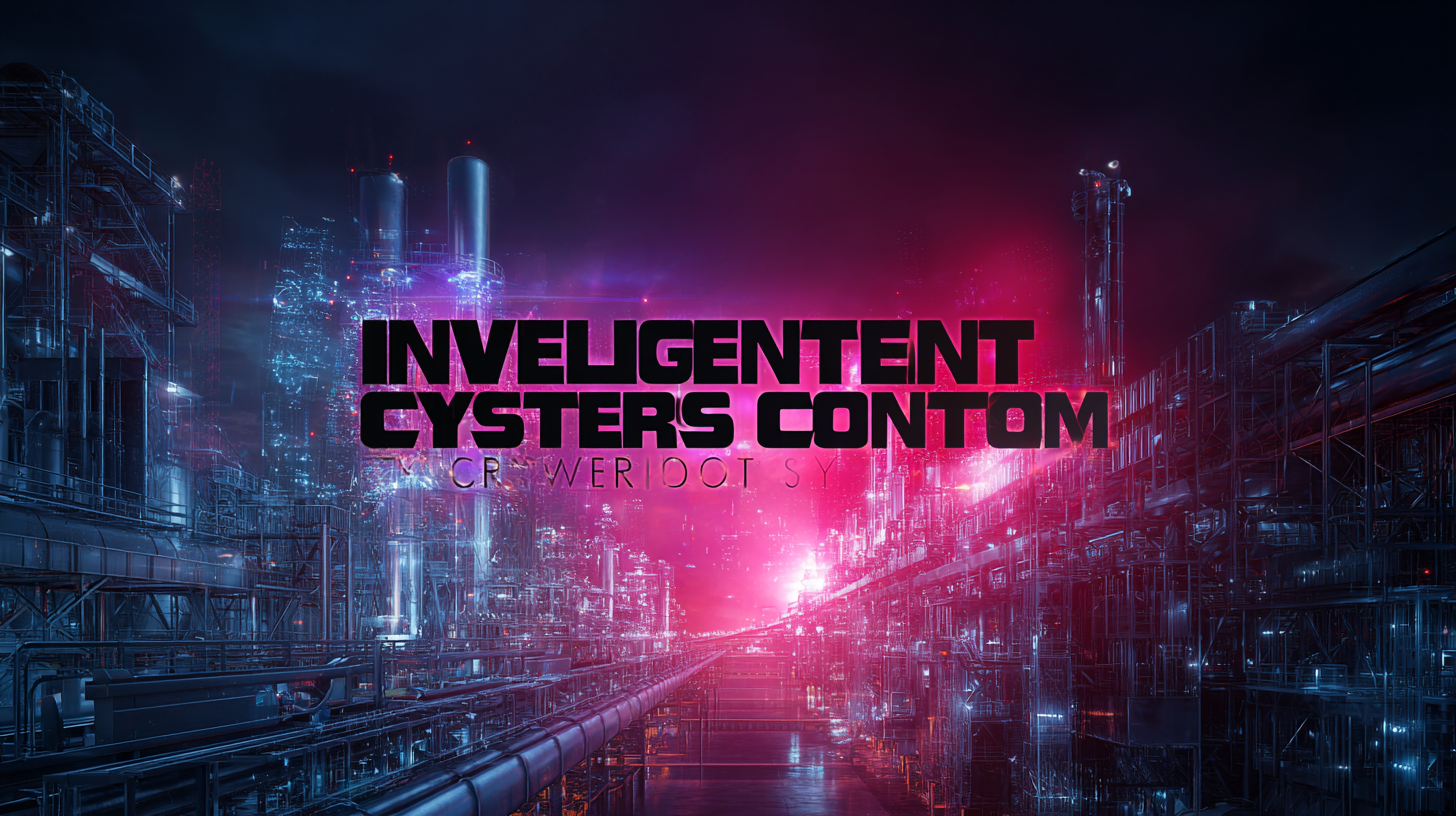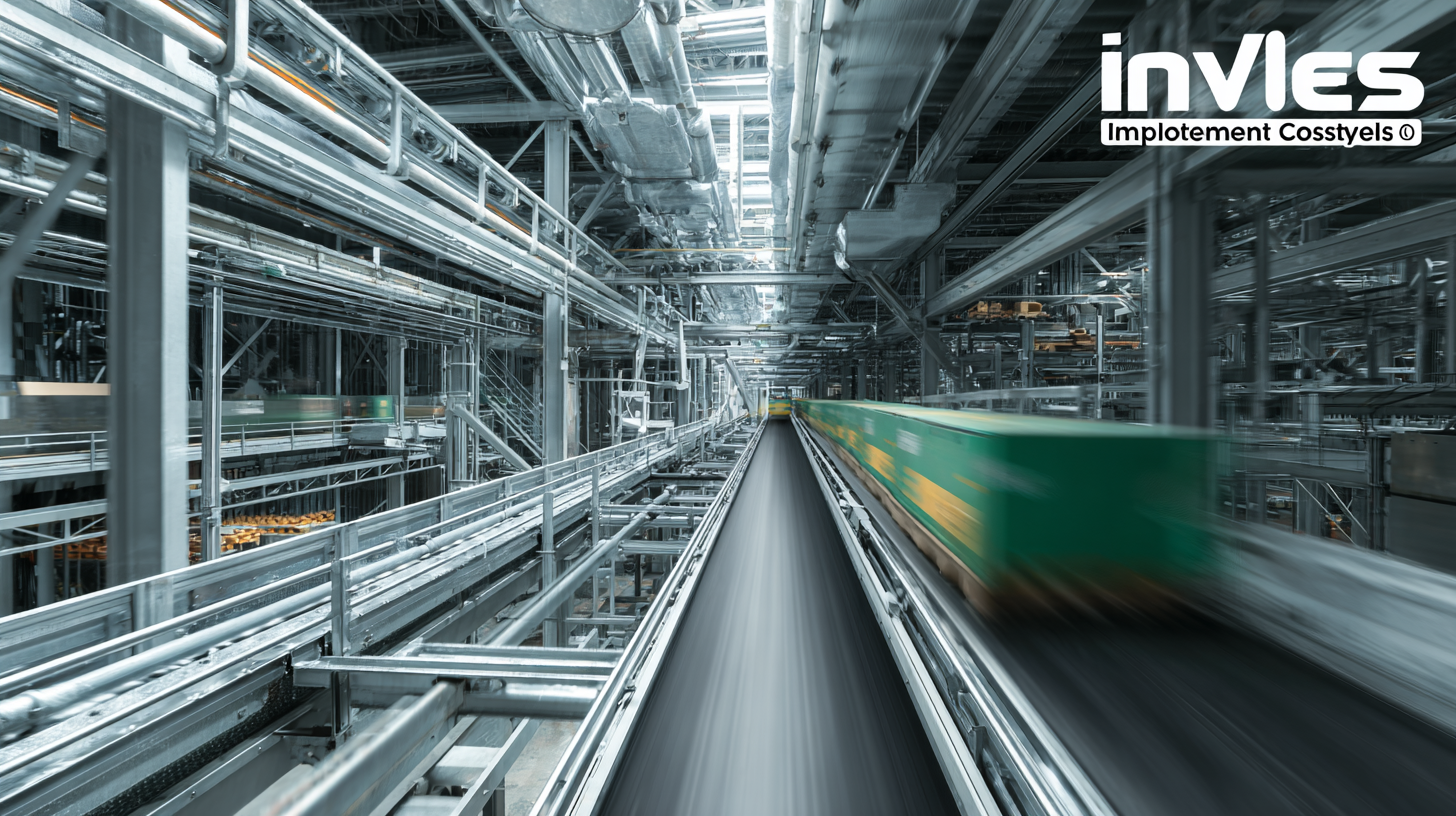 As we move towards 2025, the landscape of various industries is rapidly evolving, driven by technological advancements and the need for enhanced efficiency. One of the most significant innovations contributing to this transformation is the implementation of Intelligent Conveyor Systems. These advanced systems are not only streamlining logistics and manufacturing processes but also adapting to the unique demands of diverse sectors such as e-commerce, automotive, pharmaceuticals, and food production. By integrating features like real-time monitoring, automated sorting, and predictive maintenance, Intelligent Conveyor Systems are redefining operational paradigms. In this blog, we will explore innovative applications of these systems across various industries, highlighting their transformative effects and providing practical insights on how businesses can leverage these technologies to stay competitive in an ever-changing market.
As we move towards 2025, the landscape of various industries is rapidly evolving, driven by technological advancements and the need for enhanced efficiency. One of the most significant innovations contributing to this transformation is the implementation of Intelligent Conveyor Systems. These advanced systems are not only streamlining logistics and manufacturing processes but also adapting to the unique demands of diverse sectors such as e-commerce, automotive, pharmaceuticals, and food production. By integrating features like real-time monitoring, automated sorting, and predictive maintenance, Intelligent Conveyor Systems are redefining operational paradigms. In this blog, we will explore innovative applications of these systems across various industries, highlighting their transformative effects and providing practical insights on how businesses can leverage these technologies to stay competitive in an ever-changing market.
In today’s fast-paced industrial landscape, the deployment of intelligent conveyor systems plays a crucial role in advancing automation and efficiency. These systems utilize cutting-edge technologies such as artificial intelligence, IoT, and machine learning to streamline processes across diverse industries, from manufacturing to logistics. By integrating intelligent conveyor systems, businesses can not only enhance productivity but also minimize errors and reduce operational costs.
**Tip:** To maximize the effectiveness of intelligent conveyor systems, consider conducting a thorough needs assessment. Understanding specific workflow challenges can help in selecting the right system configuration, thus ensuring tailored solutions that address unique operational requirements.
Furthermore, intelligent conveyor systems provide real-time data analytics, allowing organizations to monitor performance and optimize workflow continuously. This data-driven approach enables quicker decision-making and enhances the agility of the supply chain.
**Tip:** Regular maintenance and updates to the software of these systems can significantly prolong their lifespan and efficiency. Investing in training for employees will also ensure that teams are well-equipped to utilize these advanced systems to their full potential, thereby fostering a culture of innovation within the workplace.
The integration of IoT technology in intelligent conveyor systems has revolutionized how industries manage their logistics and supply chains. By leveraging real-time data integration, companies can monitor and optimize conveyor performance instantly. This capability allows for proactive decision-making, minimizing downtime and enhancing overall efficiency. For instance, sensors placed along conveyor belts can provide insights into machinery health and detect potential failures before they disrupt operations.
Tips for maximizing the benefits of smart conveyor management include implementing predictive maintenance strategies. By analyzing data collected from conveyor systems, businesses can predict when maintenance is needed, reducing unexpected breakdowns and prolonging equipment lifespan. Additionally, training staff to interpret real-time data effectively can empower them to make informed decisions swiftly, further streamlining processes.
Another valuable tip is to ensure seamless integration between IoT devices and existing systems. By creating a unified platform for data analysis, companies can gain a holistic view of their operations. This approach not only aids in immediate efficiencies but also supports long-term strategic planning by offering comprehensive insights into operational trends. Embracing these innovative uses of technology is pivotal for staying competitive in today's fast-paced market.
In today’s fast-paced industrial landscape, minimizing downtime is crucial for maintaining productivity. Predictive maintenance, a proactive approach to managing conveyor systems, leverages advanced technologies to foresee potential issues before they lead to costly breakdowns. By using data analytics and machine learning, companies can monitor the performance of their conveyor systems in real-time, identifying abnormal patterns that may indicate wear or failure. This enables timely interventions, avoiding interruptions in the production process and optimizing operational efficiency.
The implementation of intelligent conveyor systems equipped with predictive maintenance capabilities is revolutionizing various industries, from manufacturing to logistics. For instance, the automotive sector relies on conveyor systems to streamline assembly lines, where any delay can be detrimental. By applying predictive maintenance, manufacturers can ensure these systems run smoothly, scheduling maintenance during non-peak hours to avoid dysfunction. As a result, the combination of innovative technologies and strategic maintenance practices is paving the way for enhanced reliability and productivity, ultimately contributing to a more resilient supply chain amidst evolving market demands.
| Industry | Conveyor Type | Predictive Maintenance Technique | Downtime Reduction (%) | Annual Cost Savings ($) |
|---|---|---|---|---|
| Manufacturing | Belt Conveyor | Vibration Analysis | 15% | $20,000 |
| Warehouse | Roller Conveyor | Thermal Imaging | 20% | $15,000 |
| Food Processing | Modular Conveyor | Ultrasonic Testing | 10% | $12,000 |
| Logistics | Flexible Conveyor | Predictive Analytics | 25% | $30,000 |
| Pharmaceutical | Zipper Conveyor | Machine Learning | 18% | $25,000 |
In today's rapidly evolving industrial landscape, intelligent conveyor systems are proving to be pivotal across various sectors, particularly in e-commerce and manufacturing. These systems leverage sophisticated technologies such as AI and IoT to streamline operations, reduce manual labor, and enhance overall efficiency. In the e-commerce space, where speed and accuracy are paramount, intelligent conveyors are revolutionizing the way goods are sorted and dispatched. Automated sorting mechanisms ensure that packages are categorized and moved efficiently, significantly reducing delivery times and improving customer satisfaction.

On the manufacturing front, intelligent conveyor systems are integral to creating a seamless production flow. By integrating these systems with smart sensors and data analytics, manufacturers can monitor the performance of their equipment in real-time, quickly identifying bottlenecks and optimizing workflows. This adaptability not only leads to increased productivity but also allows for a more flexible manufacturing process that can respond swiftly to changing market demands. As industries continue to embrace these innovative solutions, the intersection of e-commerce and manufacturing through intelligent conveyor systems will only grow stronger, setting new benchmarks in operational excellence.
In recent years, the drive for sustainability has significantly influenced the design and operational strategies in various industries, particularly with the advent of intelligent conveyor systems. These systems have evolved to incorporate eco-friendly technologies that not only streamline operations but also significantly reduce carbon footprints. According to a report by the International Energy Agency, improving industrial energy efficiency, including conveyor systems, can lead to a 30% reduction in energy consumption across the sector by 2030. This figure highlights the potential for companies to minimize their environmental impact while maintaining productivity.

Furthermore, intelligent conveyor systems now utilize advanced materials and designs that enhance durability and decrease waste. For instance, the use of modular components allows for easier recycling and replacement, ensuring that less material ends up in landfills. Implementing real-time monitoring technologies helps industries optimize their energy use, potentially saving up to 50% in energy costs as evidenced by a recent study by McKinsey & Company.
Tips: Choose conveyor systems with energy-efficient motors and variable speed drives to maximize energy savings. Regular maintenance schedules can prevent unnecessary wear and tear, contributing to both longevity and reduced environmental impact. Additionally, consider sourcing conveyor systems from manufacturers who adhere to sustainable practices throughout their production processes.
